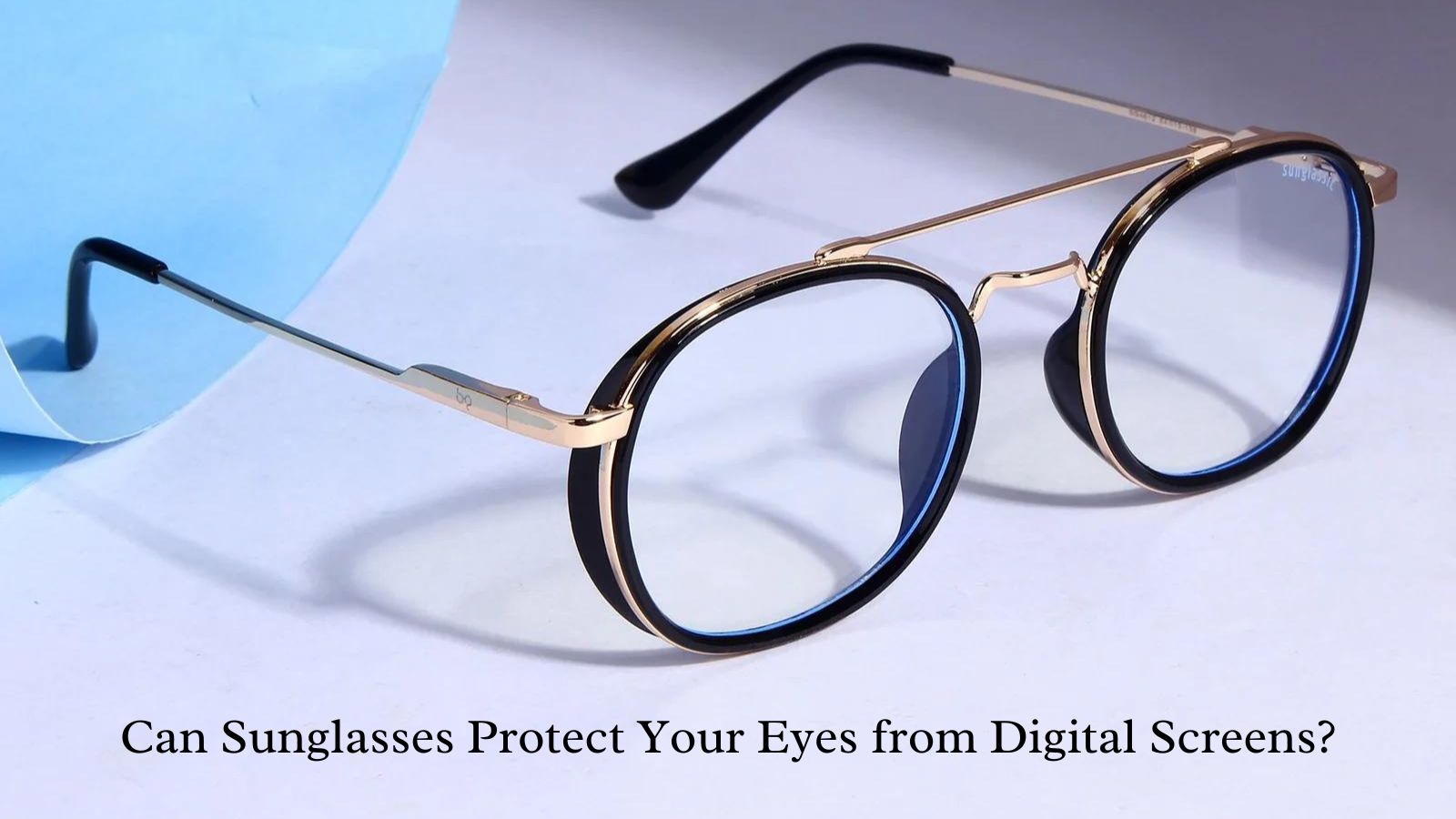
Can Sunglasses Protect Your Eyes from Digital Screens?
In today’s tech-driven world, our reliance on digital screens has skyrocketed. Whether working on a laptop, scrolling through your smartphone, or relaxing in front of the television, digital screens have become a daily necessity. However, excessive screen time can take a toll on our eyes. With rising concerns about blue light exposure and eye strain, many people wonder: can sunglasses protect your eyes from digital screens?
This blog will explore how sunglasses may provide protection from digital screens, the role of blue light, and alternative solutions to reduce digital eye strain.
The Impact of Digital Screens on Your Eyes
Before diving into how sunglasses may help, it's crucial to understand the impact digital screens have on your eyes. Prolonged screen exposure can lead to a variety of eye-related issues, often referred to as Digital Eye Strain or Computer Vision Syndrome (CVS). Some of the most common symptoms include:
- Eye strain and discomfort
- Dry eyes
- Blurred vision
- Headaches
- Neck and shoulder pain
One of the biggest contributors to these symptoms is the blue light emitted from digital screens. Blue light, a high-energy visible (HEV) light, penetrates deeper into the eye than other visible light, potentially causing eye fatigue and long-term damage to the retina.
What Is Blue Light?
Blue light, which comes from natural sunlight, LED lights, and digital screens, sits on the higher end of the visible light spectrum. It has a short wavelength and higher energy than other light, which makes it more intense for your eyes to process. The blue light emitted by digital screens has become a cause for concern due to its link to:
- Eye Strain: Staring at digital screens for prolonged periods can overwork your eyes, leading to discomfort and fatigue.
- Circadian Rhythm Disruption: Blue light exposure, especially in the evening, can affect sleep patterns by interfering with melatonin production.
- Potential Retinal Damage: While research is ongoing, excessive blue light exposure could contribute to macular degeneration over time.
Can Sunglasses Help with Digital Screens?
Now, the main question: can wearing sunglasses protect your eyes from the harmful effects of digital screens?
The short answer is that traditional sunglasses are not specifically designed to block blue light. Sunglasses typically provide UV protection and reduce glare from natural sunlight, but they aren’t optimized for indoor use in front of a screen. Here’s why sunglasses may not be the best solution for screen time:
- Tinted Lenses: Sunglasses often have dark-tinted lenses that reduce brightness. While this may alleviate some discomfort, the reduction in brightness doesn’t address the core issue of blue light exposure.
- Limited Blue Light Filtering: Standard sunglasses do not filter out the high levels of blue light emitted by screens. Blue light blocking lenses are specifically designed to reduce blue light wavelengths.
- Indoor Use: Wearing sunglasses indoors can affect your ability to see clearly, especially in low-light environments, leading to eye strain.
However, if your sunglasses have polarized lenses, they can reduce glare from digital screens. Polarized lenses filter out reflected light, improving visual clarity and reducing glare from surfaces like water, glass, and even screens. While this can provide some comfort, it’s still not an ideal solution for blue light exposure.
Blue Light Blocking Glasses: The Better Solution
To truly protect your eyes from digital screens, blue light blocking glasses are a more effective option than sunglasses. These glasses are specifically designed to filter out blue light and reduce the impact on your eyes. Here’s why blue light glasses are the better choice:
- Blue Light Filtering Technology: Blue light glasses are equipped with special coatings that block a portion of blue light wavelengths, reducing the strain on your eyes.
- Clear or Light-Tinted Lenses: Unlike sunglasses, blue light glasses have clear or lightly tinted lenses that make them suitable for indoor use. They allow you to see your screen clearly while minimizing blue light exposure.
- Reduce Digital Eye Strain: By wearing blue light blocking glasses, you can reduce the symptoms of digital eye strain, such as headaches, blurred vision, and dry eyes.
Benefits of Blue Light Blocking Glasses
- Minimized Eye Strain: Blue light glasses reduce the amount of blue light entering your eyes, helping to alleviate eye strain and discomfort during prolonged screen use.
- Improved Sleep: Using blue light glasses in the evening can help regulate your circadian rhythm by reducing melatonin disruption. This can lead to better sleep quality.
- Reduced Glare: Some blue light glasses also offer an anti-reflective coating that reduces glare, further improving visual comfort.
- Versatility: Unlike sunglasses, blue light glasses are designed for indoor use, making them suitable for work, gaming, and general screen time.
Should You Choose Sunglasses with Blue Light Filters?
While blue light blocking glasses are designed for screen use, some sunglasses now come equipped with blue light filtering technology. These sunglasses can offer a blend of UV protection, glare reduction, and blue light filtering. They can be particularly beneficial for those who frequently transition between indoor and outdoor environments, such as:
- People who work outdoors but also use digital devices
- Those who want a dual-purpose pair of glasses that protect from both the sun and digital screens
- Individuals with sensitive eyes who need added comfort indoors and out
However, it’s important to note that these sunglasses are still not optimized for long periods of indoor screen use. If your primary concern is digital eye strain, a dedicated pair of blue light glasses will serve you better.
Other Tips to Protect Your Eyes from Digital Screens
While blue light glasses are a great tool for reducing eye strain, there are additional ways to protect your eyes during screen time:
1. Follow the 20-20-20 Rule
One of the simplest ways to reduce eye strain is by following the 20-20-20 rule. Every 20 minutes, take a 20-second break and look at something 20 feet away. This gives your eyes a chance to relax and refocus.
2. Adjust Screen Settings
Many devices now come with a night mode or blue light filter option, which reduces blue light emission. You can also adjust the brightness and contrast of your screen to make it easier on your eyes.
3. Blink More Often
When staring at screens, people tend to blink less frequently, which can lead to dry eyes. Make a conscious effort to blink more often to keep your eyes lubricated.
4. Maintain Proper Distance
Ensure that your screen is at least an arm’s length away from your eyes and positioned at a slightly downward angle. This helps reduce strain on your eyes and neck.
5. Consider Screen Protectors
Anti-blue light screen protectors can be applied to your devices. These protectors filter blue light directly from the screen, offering another layer of protection.
Conclusion: The Best Eye Protection for Digital Screens
While traditional sunglasses may offer some relief from glare, they are not designed to protect your eyes from the blue light emitted by digital screens. If you want to safeguard your eyes from digital strain, blue light blocking glasses are the best solution. These glasses filter out blue light, reduce eye strain, and help you maintain visual comfort during extended screen time.
If you’re someone who spends a lot of time both outdoors and in front of digital devices, sunglasses with blue light filtering lenses may be a versatile option. However, for dedicated screen use, a specialized pair of blue light glasses will offer the most protection.
At Sunglassic.com, we offer a range of stylish eyewear solutions to protect your eyes, whether you’re facing the sun or a digital screen. Stay stylish while safeguarding your vision with our collection of blue light blocking glasses and polarized sunglasses designed to fit your lifestyle.
SHOP BY SHAPE
WORN BY OVER 200.000 PEOPLE WORLDWIDE



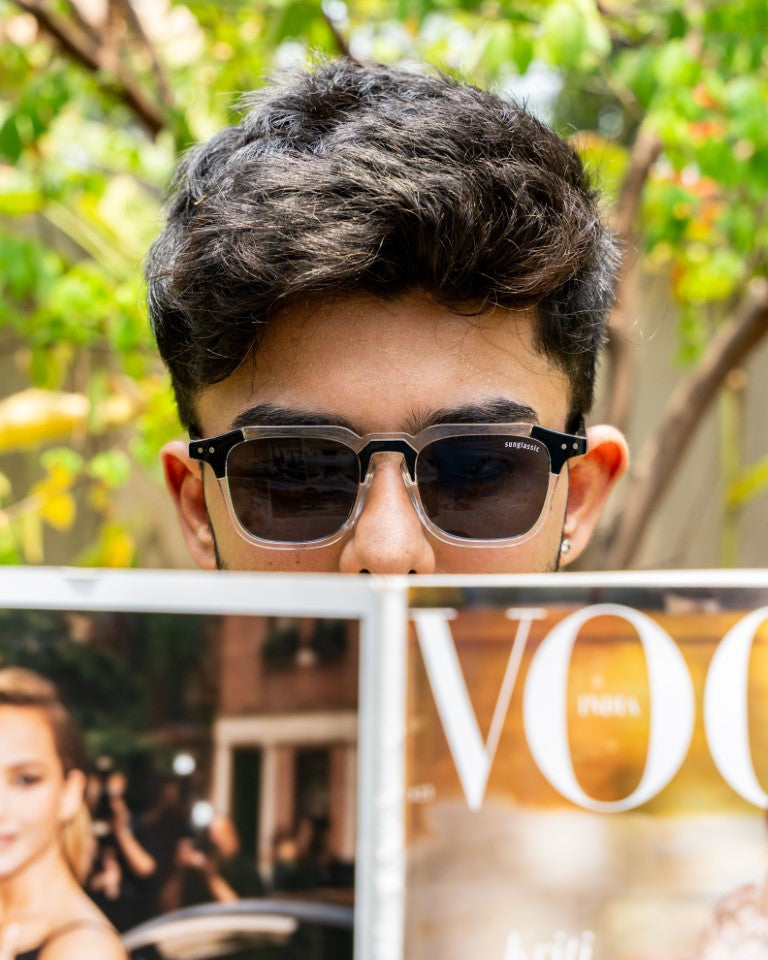

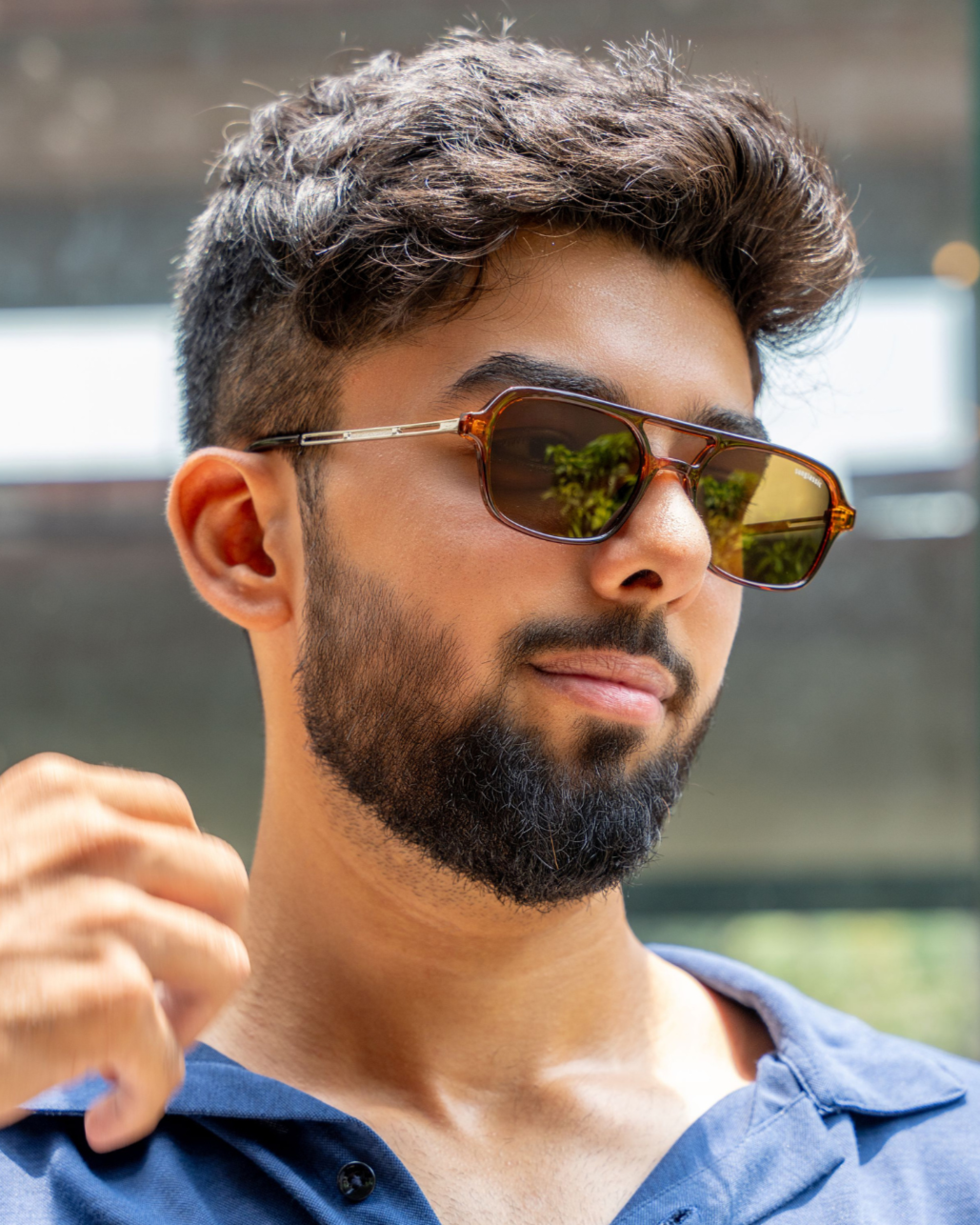
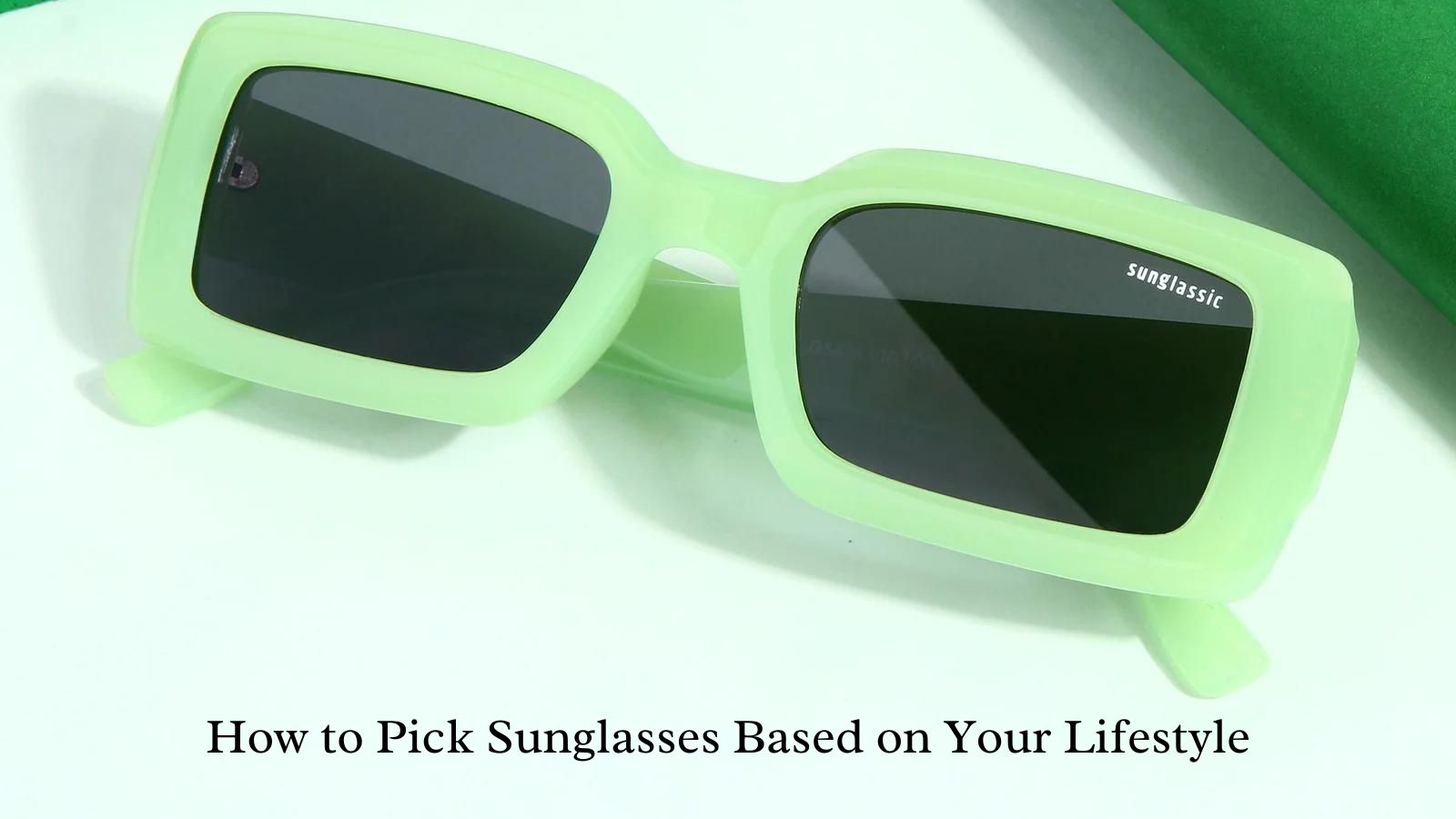
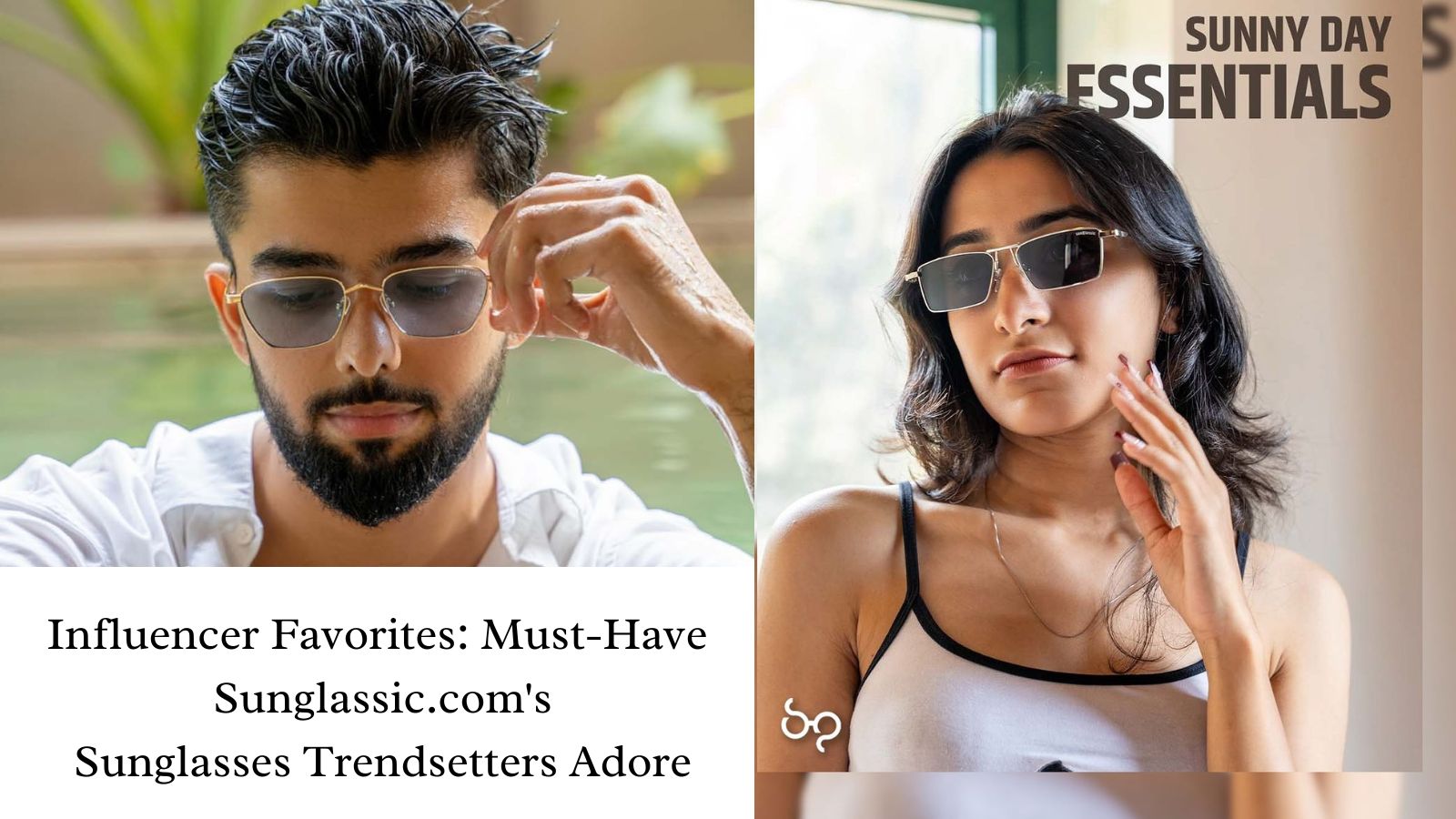
Leave a comment
This site is protected by hCaptcha and the hCaptcha Privacy Policy and Terms of Service apply.